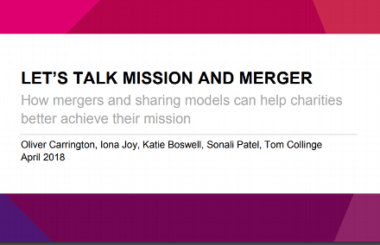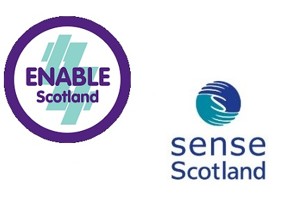Charities too often view mergers as the “consequence of failure” and avoid serious discussions about how to collaborate better, according to a report published today.
In the report, Let’s talk mission and merger, published today, the charity sector think tank outlined the benefits of merger, different models they take, and seeks to break down the barriers to merge.
NPC is urging sector leaders to think about mergers more regularly and suggests at least once a year.
“Mergers are too often viewed as a consequence of failure. The concept has become unfairly tainted. It’s time to change the narrative and talk about mergers as a tool for achieving more for causes,” the report said.
NPC said that more mergers could help the sector to be “better structured” and increase its overall impact.
It said there are a range of models for sharing and merging that are ignored by charities, including group structures, white labelling (when a charity provides services under another charity’s banner) or back office sharing.
The report includes a number of case studies highlighting best practice.
Dan Corry, chief executive of NPC said: “In this report we have eliminated a lot of the excuses trotted out to stop charities even considering mergers. More importantly we have shown that there are tangible benefits to merger for charity beneficiaries. Of course, a merger is not the answer to every question, or suitable for every charity, but it can be a valuable tool. Charities, boards, funders and regulators need to embrace its potential.”
Barriers.
NPC said there are three main barriers: people, finance and risk, and environment.
- People: attitudes of leadership, trustees, including fear of job losses; attachment to organisational identity; lack of headspace, skills, time and knowledge; and cultural resistance to mergers;
- Finance and risk: costs of merger, and risks of merger, including liabilities;
- Environment: external barriers, eg, tax and legislative hurdles; difficulty of finding partners.
“But too often they are used to shut down discussion. It’s time we honestly identified the barriers and how they can be overcome,” the report said.
Recommendations
The report makes key recommendations for funders, trustee, leaders and the Charity Commission, which are:
- Funders: should support mergers more actively through, for example, committing to support grantees through the merger process and not reducing total funding to charities that merge. Supporting mergers with grants would also be welcome.
- Trustees: should act in accordance with the Charity Governance Code and prioritise charitable mission over organisational integrity/survival. Serious consideration of merger options should be a regular occurrence.
- Charity leaders: should view merger and sharing models as a badge of honour, and a successful outcome of strategic thinking, rather than an admission of failure—and should be supported to implement opportunities.
- The Charity Commission: should look at a small sample of charities each year to ensure their obligation to consider the benefits to their mission of partnership-working or merger is being taken seriously.
|
Related articles












